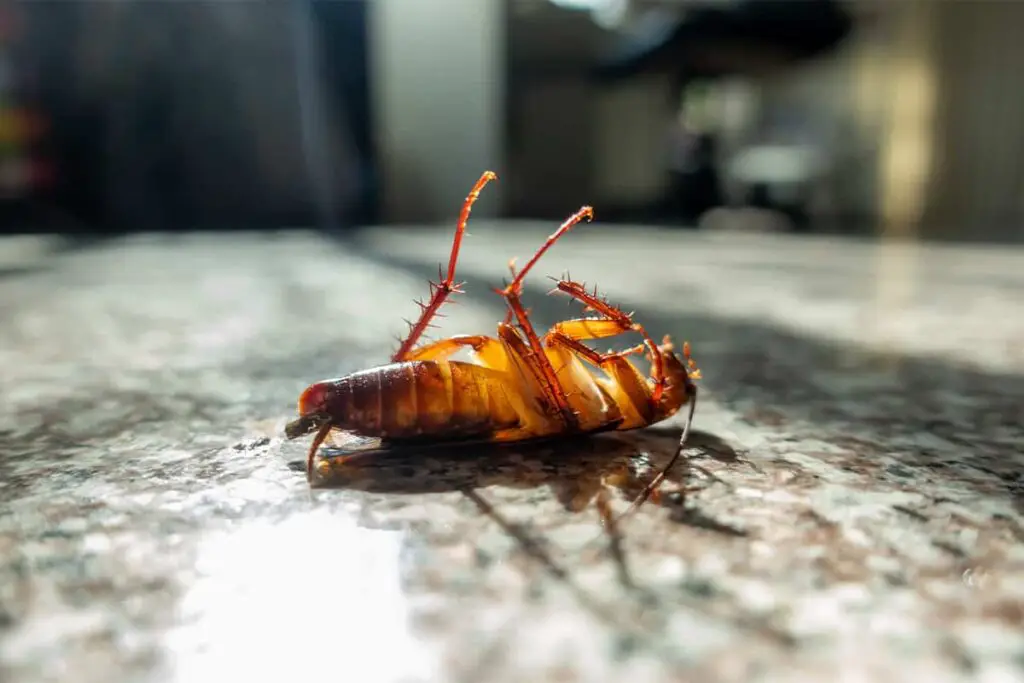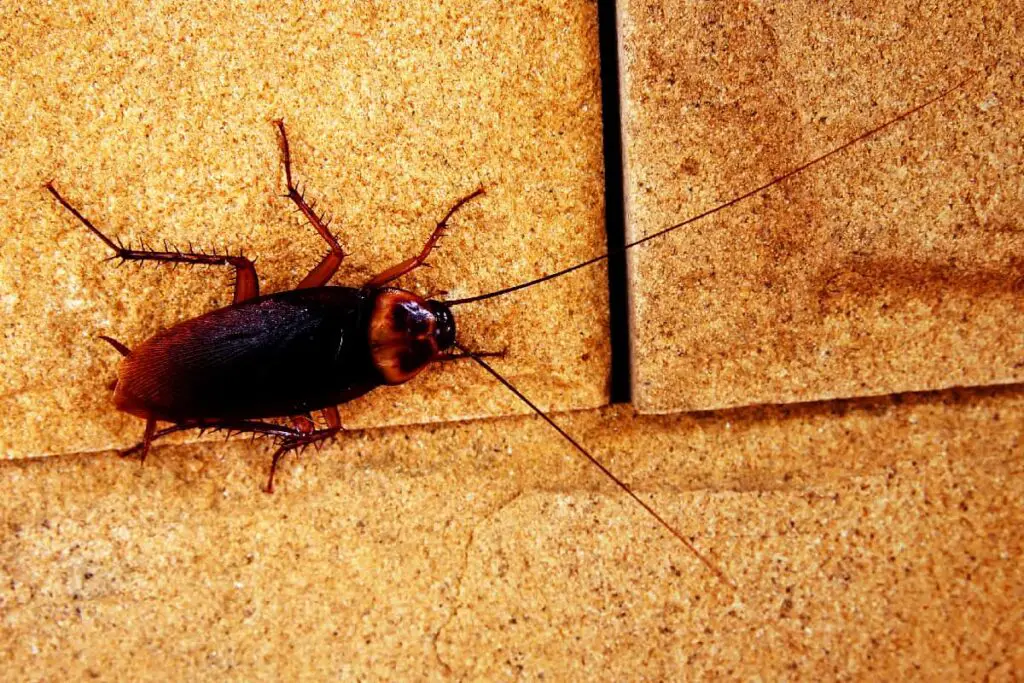When dealing with a roach infestation, you might have heard about various home remedies touted as effective insect control methods. Ammonia frequently comes up in these conversations, rumored to be a powerful weapon against roaches. It’s understandable to want quick and easy solutions, and you might be curious about the effectiveness of ammonia in killing these persistent pests.
Ammonia’s reputation as a roach killer is not without merit; it has properties that can impact roaches negatively. Specifically, when roaches come into direct contact with ammonia, it can be harmful to them. The substance works by potentially breaking down their exoskeletons and acting as a deterrent due to its strong smell, which roaches find repellent. But before you start using ammonia, it’s important to understand the proper way to apply it and consider safety precautions, since ammonia is also a harsh chemical that can be dangerous to humans and pets if misused.
Efficacy of Ammonia Against Roaches
Ammonia is often discussed in the context of household pest control, particularly when dealing with cockroaches. You might have heard that it can be a potent agent against these stubborn pests. Let’s break down how effective ammonia really can be.
Direct Contact: If you’re considering using ammonia, it’s important to understand that it’s most effective when sprayed directly onto roaches. The Pest Informer states that roaches must come into direct contact with ammonia for it to be lethal.
Spray Solution: To potentially repel or kill roaches, mix a solution containing two parts of ammonia to one part hot water. You can then use this mixture in a spray bottle, targeting roaches as you see them. An example mix is provided by 24H Pest Pros, which suggests a ratio of 4 ounces of hot water to about two-thirds of an ounce of ammonia.
| Ratio | Ammonia | Water |
|---|---|---|
| 1:1 | 16 oz | 16 oz |
| 2:1 | 16 oz | 8 oz |
Repellent Effect: Adding ammonia to water and using it to mop your floors can also help repel roaches through its strong scent.
However, keep in mind that ammonia is not a guarantee and has limitations. For one, it won’t effectively eliminate a roach infestation since roaches often hide out of reach. Furthermore, the application of ammonia is quite short-lived and typically repels rather than eliminates these pests, as explained by Pest Week.
Lastly, always remember to use ammonia cautiously, as it is a harsh chemical and can pose risks to your health and the environment. Always ventilate the area well and consider using protective gear when handling this substance.
Using Ammonia Safely as a Roach Deterrent
Ammonia can be an effective roach deterrent, but it’s important to use it safely to avoid harm to you or your household. This section will guide you through proper preparation and application techniques.
Preparation
Before you begin using ammonia, ensure you have gloves and eye protection to prevent skin and eye irritation. Adequately ventilate the area by opening windows or using fans, as ammonia fumes can be harmful if inhaled. Mix your solution using a two-to-one ratio of ammonia to water— for instance, mix 2 cups of ammonia with 1 cup of water.
Application
Apply the ammonia solution directly on roaches upon sight or in areas where roaches frequent. Using a spray bottle, target specific spots rather than employing a widespread application, as this could increase the risk of exposure to pets or children. After application, clean the areas with soap and water to remove any residue and limit the spread of fumes.
Environmental and Health Considerations
In deciding whether to use ammonia as a roach control method, you must consider its potential effects on your health and the environment.
Toxicity to Humans and Pets
Ammonia is classified as a hazardous substance and, in high concentrations, can be toxic to both humans and pets. Exposure to ammonia can result in eye, nose, and throat irritation. In severe cases, it can lead to respiratory distress or burns upon contact with skin. It’s particularly important to use ammonia in a well-ventilated area to minimize inhalation risks.
Impact on the Environment
While ammonia does not accumulate in the environment, its byproducts can affect the ecological balance. When introduced in high amounts, ammonia can contribute to eutrophication in water systems, promoting excessive plant growth and adversely impacting aquatic life. It’s vital to be mindful of how much ammonia is used and where it’s disposed.
Frequently Asked Questions
In this frequently asked questions section, you’ll find concise, straightforward answers to common inquiries about eliminating roaches, including safe and effective methods, natural alternatives, and immediate solutions.
What are the most effective methods for getting rid of roaches overnight?
To eliminate roaches quickly, you can apply insecticide sprays, gels, or baits before bed. These treatments work overnight, targeting roaches where they hide.
Can boric acid be used as an effective roach killer?
Yes, boric acid is a widely recognized roach killer. It affects their digestion and exoskeleton, leading to dehydration and death when ingested by roaches.
Is it safe to use bleach for roach control, and how does it compare to other methods?
Using bleach is not the safest option for roach control due to its harsh chemical nature, and it’s less effective than targeted insecticides or baiting systems.
What household substances can be poured down drains to eliminate cockroach infestations?
Pouring a solution of baking soda and vinegar down the drain can help to address infestations, as roaches are often repelled by the mixture.
Are there any natural alternatives to chemical roach killers, like vinegar?
Natural alternatives like diatomaceous earth or a vinegar and water solution can repel roaches, though they may not always kill them outright.
What are some instant solutions for dealing with a cockroach problem?
For an instant solution, you can use aerosol insecticides to kill on contact, but these do not provide long-term control and should be used in conjunction with other treatments.
Driven by a passion for those tiny creatures that rule our world, we at Bug Domain strive to be your go-to resource for information on insects.



